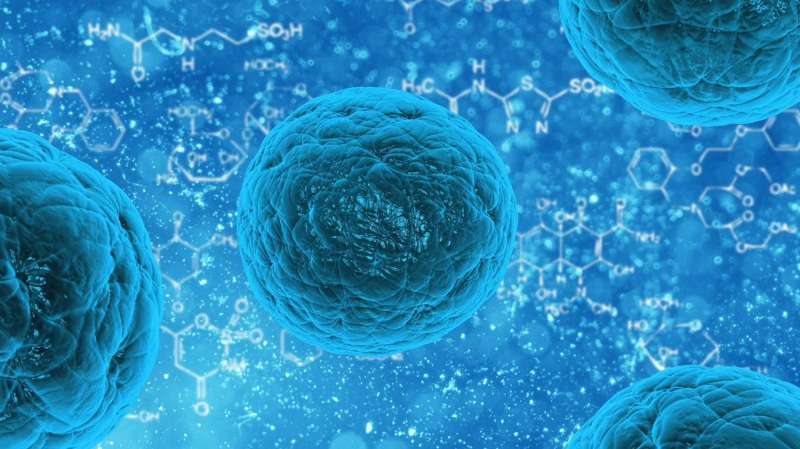
Credit: CC0 Public Domain
A new study in a preclinical model, by investigators from Brigham and Women’s Hospital, demonstrates the potential for restoring fertility when the ovaries have stopped working. The researchers found that adult stem cells could restore healthy hormone levels after chemotherapy and lead to natural conception resulting in the birth of live mice. Techniques based on the study could revolutionize fertility options for women with premature ovarian failure. The results are published today in the journal eBioMedicine.
The preclinical study showed that injecting ovarian tissue-derived differentiated induced pluripotent stem cells can restore hormone production and fertility in mice with premature ovarian failure related to genetic diseases and cancer treatment.
“This proof-of-principle study shows that you can take non-reproductive cells and make them into functional eggs that can develop into multiple generations of live animals,” said corresponding author Raymond Manohar Anchan, MD, Ph.D., director of the stem cell biology and regenerative medicine research laboratory in the Brigham’s Center for Infertility and Reproductive Surgery. “The study is exciting because it gives hope to patients with ovarian failure that they may be able to have biological children and make reproductive hormones.”
Studies like this one show the promise of cell therapy for treating incurable conditions. Mass General Brigham’s Gene and Cell Therapy Institute is helping to translate scientific discoveries made by researchers into first-in-human clinical trials, and ultimately, life-changing treatments for patients. The Institute’s multidisciplinary approach sets it apart from others in the space, helping researchers to rapidly advance new therapies and pushing the technological and clinical boundaries of this new frontier.
About 5% of women have premature ovarian failure from cancer treatment or genetic issues. As cancer rates among younger adults continue to rise, chemotherapy-related infertility rates are expected to rise as well. Once a person’s ovaries fail, hormone levels fall, and they lose the ability to create eggs and conceive children. There are currently no therapies to get their fertility back after ovarian failure. To have kids, people with ovarian failure need to use donor or frozen eggs or embryos.
Ovarian failure can also cause other health issues related to low hormone levels. People with ovarian failure may lose bone mass and have sexual and heart health issues. Synthetic hormone replacement therapy can help, but there are limited data on its long-term use in teens and young people.
Previous studies have shown that cells from the mouse ovary, called granulosa cells, can be used to create induced pluripotent stem cells. These stem cells can become any kind of cell in the body. The researchers turned them into ovarian cells and showed in the lab that the cells make reproductive hormones like estrogen and progesterone and can become cells that turn into eggs.
The researchers saw that the injected stem cells restored the mouse hormone levels and fertility, including the ability to conceive and give birth to live mouse pups naturally. Interestingly, they also saw that the injection of stem cells into one ovary appeared to heal the other ovary, restarting its egg production.
“I think that was the most exciting finding. We were able to get some of the animals’ autologous eggs to come resume development in both ovaries, not just the ovary we injected,” Anchan said. “The stem cells must be secreting a factor promoting this healing process. We’re now looking at what the factor or factors might be. Identifying such a factor or factors would be doubly exciting because perhaps we can treat some patients with this factor without having to inject any cells.”
Limitations of the study include that it was done in mice. There’s no proof this would work in humans. There may be ethical issues in using induced stem cells to conceive new humans. The researchers don’t know if the pups born from these stem cell-derived eggs are healthy and normal beyond surviving birth and being able to breed. Longer-term studies of the offspring from these experiments are happening now.
More information:
Elias, K., Ng, N et al. Fertility restoration in mice with chemotherapy induced ovarian failure using differentiated iPSCs, eBioMedicine (2023). DOI: 10.1016/j.ebiom.2023.104715
Citation:
Researchers reverse chemotherapy-related fertility loss using cell-based therapy (2023, July 21)
retrieved 21 July 2023
from https://medicalxpress.com/news/2023-07-reverse-chemotherapy-related-fertility-loss-cell-based.html
This document is subject to copyright. Apart from any fair dealing for the purpose of private study or research, no
part may be reproduced without the written permission. The content is provided for information purposes only.
>>> Read full article>>>
Copyright for syndicated content belongs to the linked Source : Medical Xpress – https://medicalxpress.com/news/2023-07-reverse-chemotherapy-related-fertility-loss-cell-based.html
